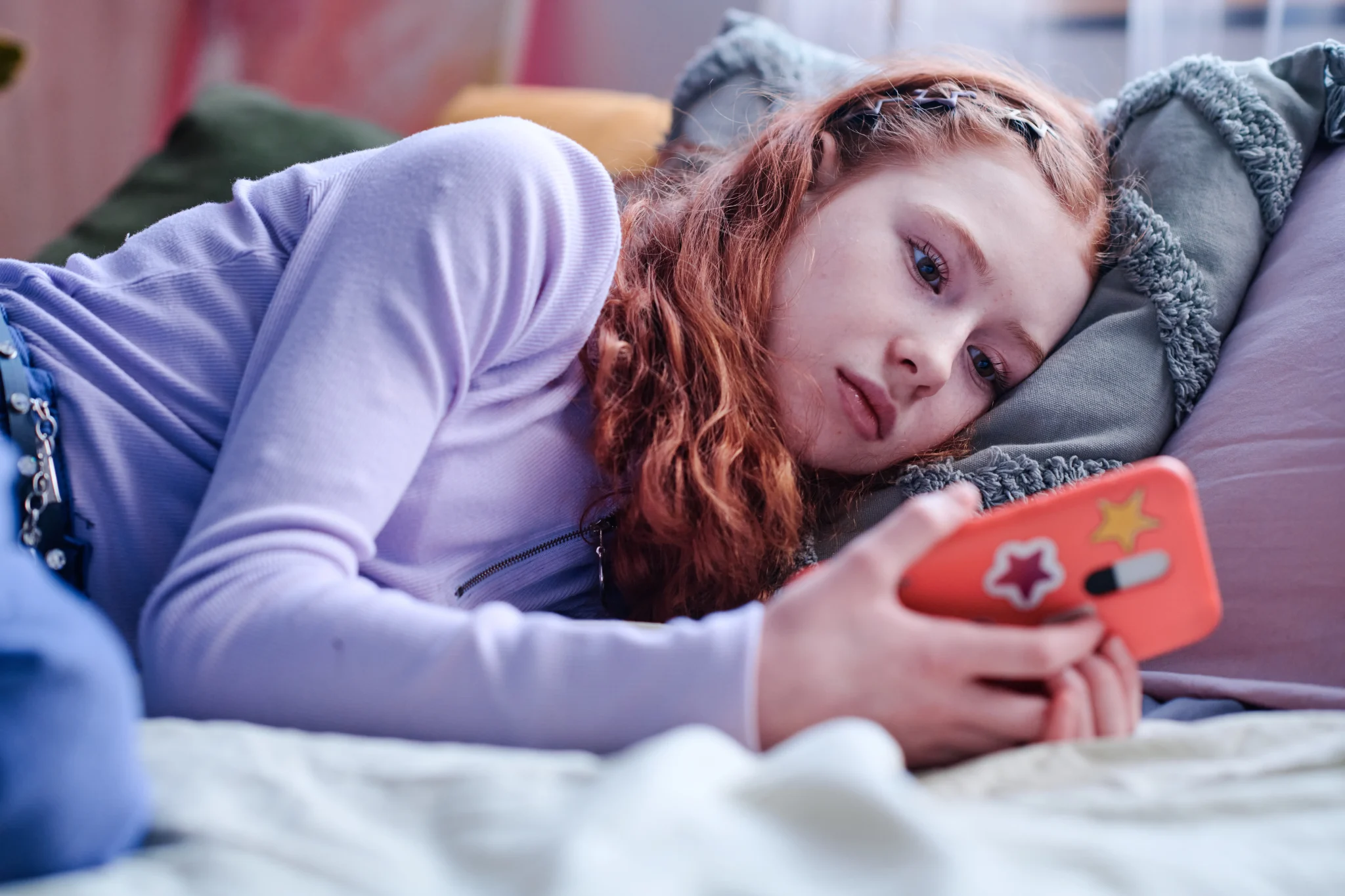Children’s screen time: how to manage it in a healthy way
Children’s screen time is a growing concern for families and educators. While technology plays a vital role in education and entertainment, excessive use can negatively impact child development. Striking a balance between screen exposure and other activities is essential for fostering healthy digital habits.
This article explores strategies for regulating children’s screen time and presents alternative activities, recommended by private schools in Best Schools in Spain (BSS), to ensure a well-rounded development.
The effects of excessive screen time on children
While technology can be educational, uncontrolled usage may lead to:
- Reduced concentration and lower attention span.
- Sleep disturbances, as blue light affects melatonin production.
- Increased sedentary lifestyle, leading to decreased physical activity.
- Weaker social skills and reduced face-to-face interaction.
To avoid these issues, it is crucial to set clear boundaries and encourage a balanced approach to technology use.
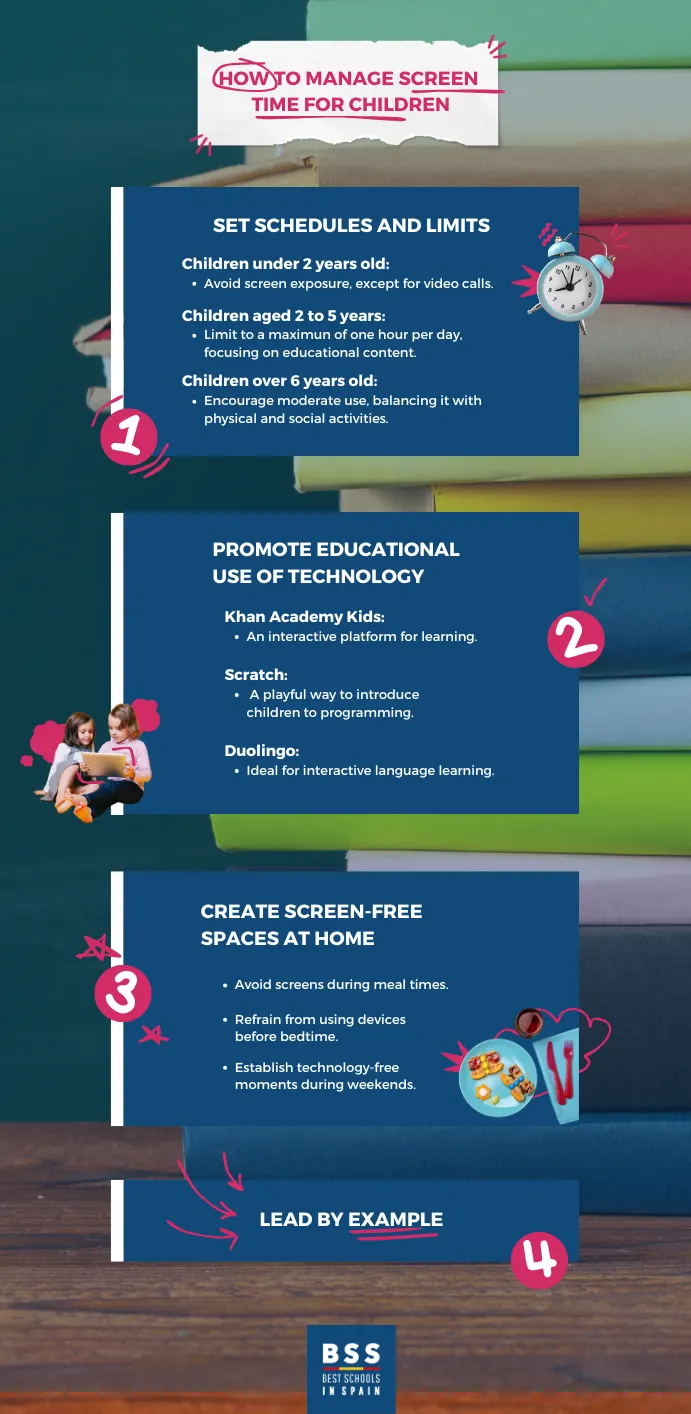
How to manage children's screen time
1. Set time limits and schedules
Experts recommend the following maximum screen time per age group:
- Under 2 years: Avoid screen exposure, except for video calls.
- Ages 2 to 5: Up to one hour per day, prioritising educational content.
- Ages 6 and above: Moderate use, balanced with physical and social activities.
BSS private schools follow these guidelines, integrating technology as a pedagogical tool while combining it with experiential learning and face-to-face activities.
2. Encourage educational use of technology
Rather than banning screens, it is essential to direct their use toward educational tools such as:
- Khan Academy Kids: Interactive platform covering maths, science, and literacy.
- Scratch: Teaches programming in a fun and engaging way.
- Duolingo: Ideal for improving language skills interactively.
These resources are widely used in Best Schools in Spain private schools, where technology is seamlessly integrated into the classroom with a balanced educational approach.
3. Create screen-free spaces at home
Designating device-free areas helps regulate screen time. Effective strategies include:
- No screens at the dinner table, encouraging family conversations.
- Avoiding devices before bedtime to improve sleep quality.
- Setting technology-free moments on weekends for offline activities.
4. Lead by example
Children mirror adult behaviour. Reducing personal screen time and prioritising reading, outdoor activities, and quality family time will help them develop healthy digital habits.
Screen-free alternatives for children
When children have engaging alternatives, their reliance on digital devices naturally decreases. BSS private schools recommend the following activities:
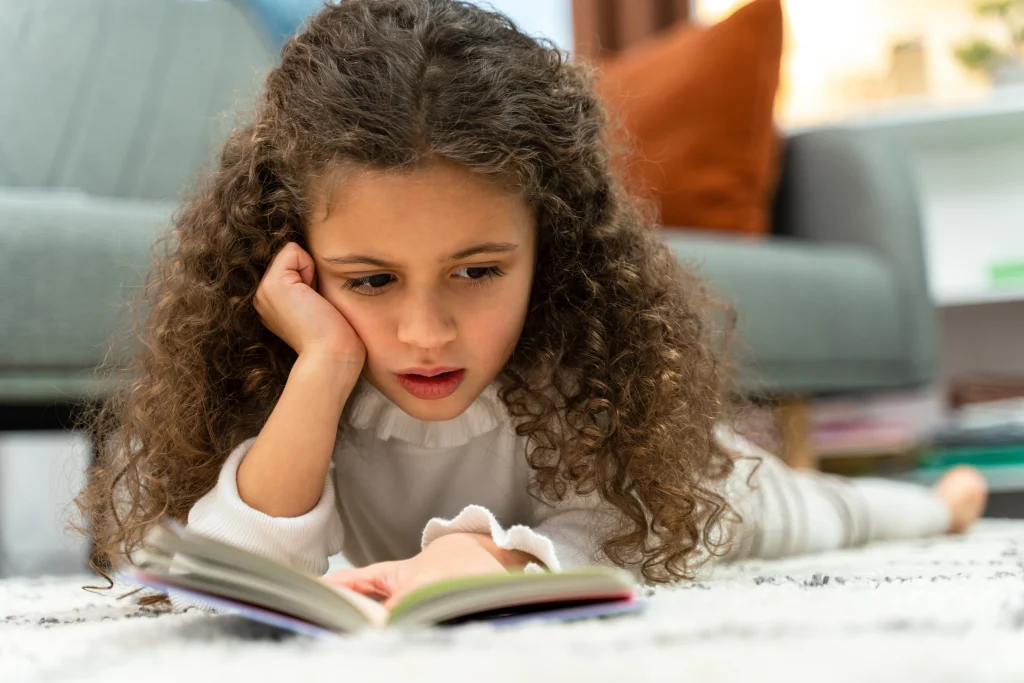
1. Reading and storytelling
- Create a dedicated reading space at home with age-appropriate books.
- Start a family book club where children share their thoughts on stories.
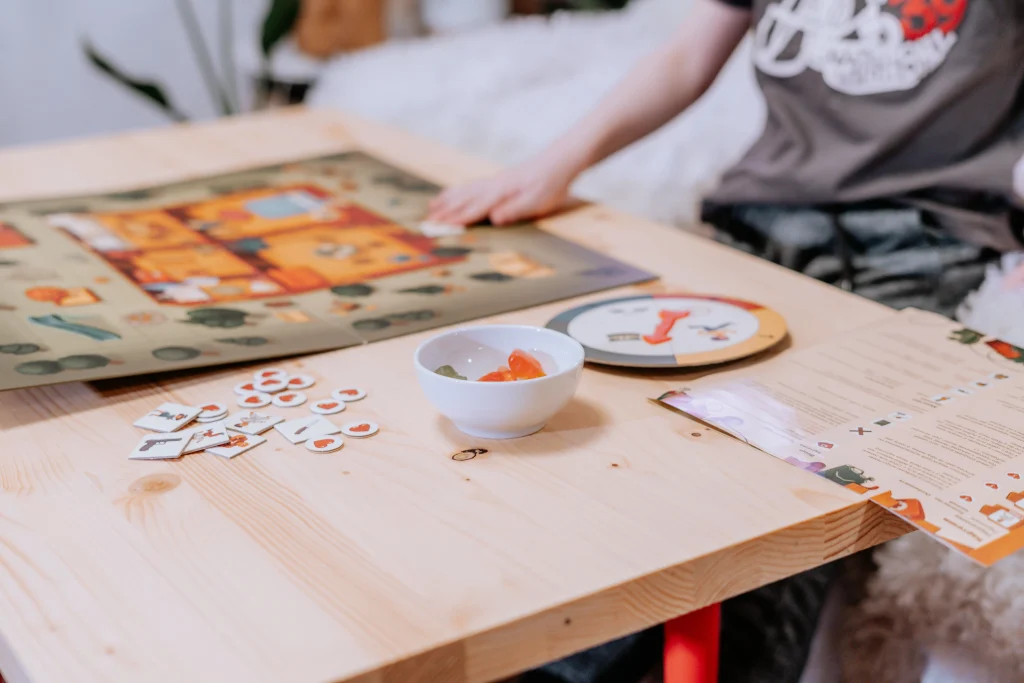
2. Board games and puzzles
- Chess or Catan Junior: Develop strategic thinking.
- Story Cubes: Enhances creativity and verbal expression.
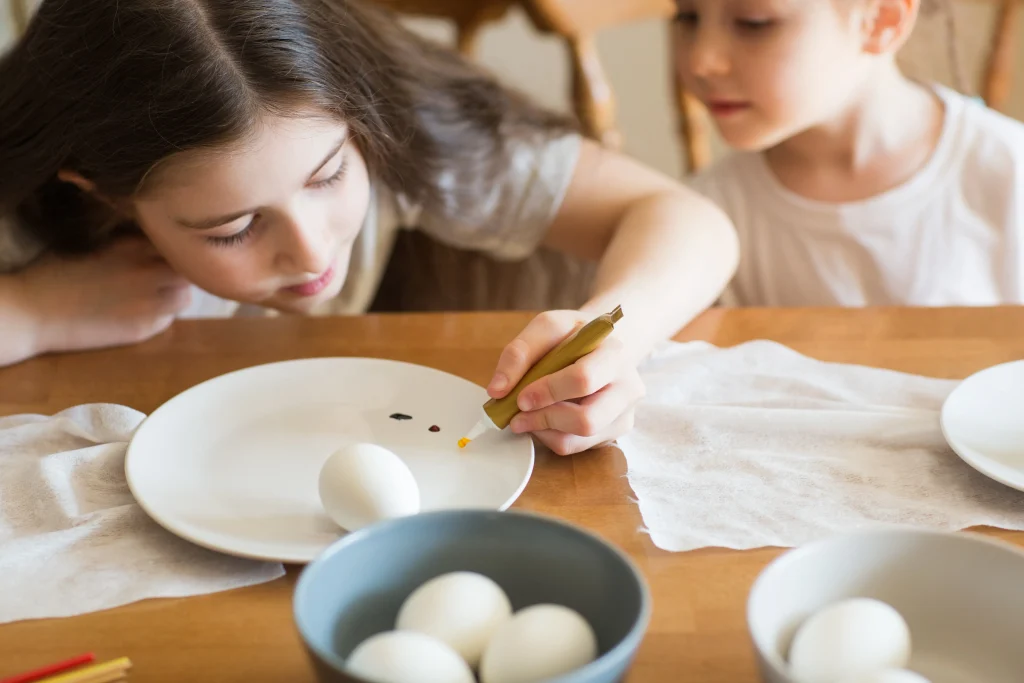
3. Arts and crafts
- Drawing, painting, and clay modelling to boost creativity.
- DIY projects using recycled materials for hands-on learning.

4. Sports and physical activities
- Enrol children in sports such as football, swimming, or dance.
- Plan family walks or outdoor excursions for fresh air and exercise.
At BSS private schools, education focuses on balancing technology with physical and creative activities, promoting children’s overall well-being.
Conclusion: a balanced approach to screen time is essential for child development
Children’s screen time does not have to be harmful when managed appropriately. By setting limits, encouraging healthy digital habits, and providing engaging alternatives, children can enjoy technology without compromising their development.
Best Schools in Spain’s private schools implement strategies to teach responsible technology use, ensuring that screens serve as a learning tool rather than a barrier to growth.
If you are looking for a school that balances technology and holistic development, explore BSS educational options and discover how to enhance your child’s learning experience. Visit our website to find the best school for your child’s future.

